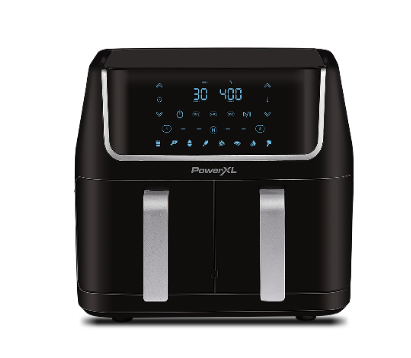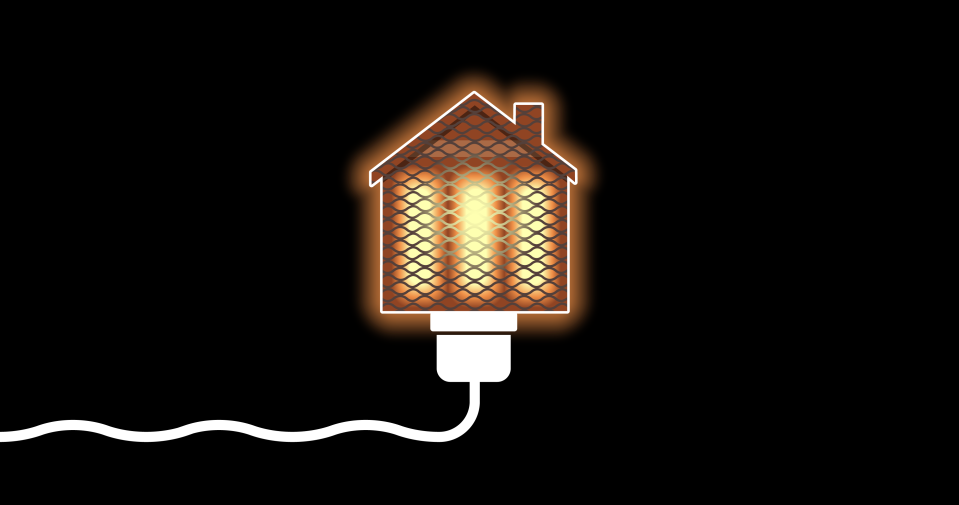Beware your fryer: Small appliances can carry fire risks
Many people probably found some small appliances like portable grills and air fryers under their Christmas trees this season, but they might not realize the hazards of their gifts.
Small appliances like these and room space heaters pose some risk of fires, particularly in old homes with outdated electrical systems.
With many people spending more time indoors and using these appliances more frequently, it's essential to take extra precautions to ensure your safety and the safety of those around you, experts say.

The National Fire Protection Association reports nearly 46% of heating fires occur during peak winter months, with 88% of heating fire-related deaths involving stationary or portable space heaters. This is often due to families using small home appliances without proper knowledge of reducing hazards.
Beaver Falls Fire Chief Mark Stowe recently cautioned against potential hazards associated with small home appliances this season. He warned that electrical fires often occur due to the use of extension cords and outlet extenders, due to them being overloaded and making them a significant cause of electrical fires.

“The use of these strip plugs running to several appliances is hazardous, and that's when you're going to have a fire,” Stowe said. “the same goes with space heaters.
"Now, in winter, people want to run these space heaters, and for convenience, they want the space heater in front of something, and to do that, they run the extension cords. I've seen two or three space heaters plugged into one cord, and you will have a fire. It's just it's inevitable. Again, you're trying to pull too much electricity through that one cord, and that's when it heats up, and you have a fire,” he said.
Stowe clarified that extension cords and outlet extenders are not meant for use in old houses with outdated electrical systems. He said these houses were designed for low-power devices like lamps, and the increased use of small appliances that draw more power than the system was intended for can result in electrical fires.
“When these electrical systems were made 70 years ago, an electrical system was put into a home; we don't have all the appliances we have today,” Stowe said. “We didn't have, you know, big-screen TVs that had sound systems and DVD players and cable boxes and everything else that you see. It's no wonder we have fires because you're overloading the whole system, especially in these older homes with electrical systems that weren't designed for that.”
Additionally, experts say, that some appliances may have design or construction issues that make them more prone to electrical malfunctions or fire hazards. It can be challenging to detect these risks, particularly when shopping online, as consumers may need more time to inspect the product in person.
Audrey Guskey, a marketing professor at Duquesne University and the founder of Consumer Sense, a website that tracks consumer trends, warned consumers to exercise caution while researching small appliances online. She said review sites may sometimes be compensated to provide favorable reviews for products prone to hazards and recommended buying from well-known brands that consumers trust.
“I would also say probably stick to the name big name brands that we're familiar with because if you have one and there's a lot of off-brands out there ... you might not be sure of the reputation, the quality or the safety there," she said. "As a professor, I would say do your homework.”
Gutskey recommended individuals seeking product reviews should turn to Consumer Reports. This American nonprofit consumer news outlet is committed to impartial product testing, as it does not accept advertisements or engage in sponsored content.
Gutskey and Stowe both recommended unplugging small appliances when not in use to prevent potential fires. This suggestion is supported by the NFPA and several other organizations like the U.S. Consumer Product Safety Commission, which cites electrical distribution systems as the third leading cause of home structure fires.
Between 2015-19, local fire departments reported an average of 32,620 home fires involving electrical distribution and lighting equipment per year, the agency said.
“These types of appliances draw a lot of power, and the more power an appliance draws as you pull that electricity through a thinner cord, the more the extension cord will tend to heat up,” Stowe said. “And that's where you run a risk of a fire.”
This article originally appeared on Beaver County Times: How do you protect yourself from small appliance fire hazards?

